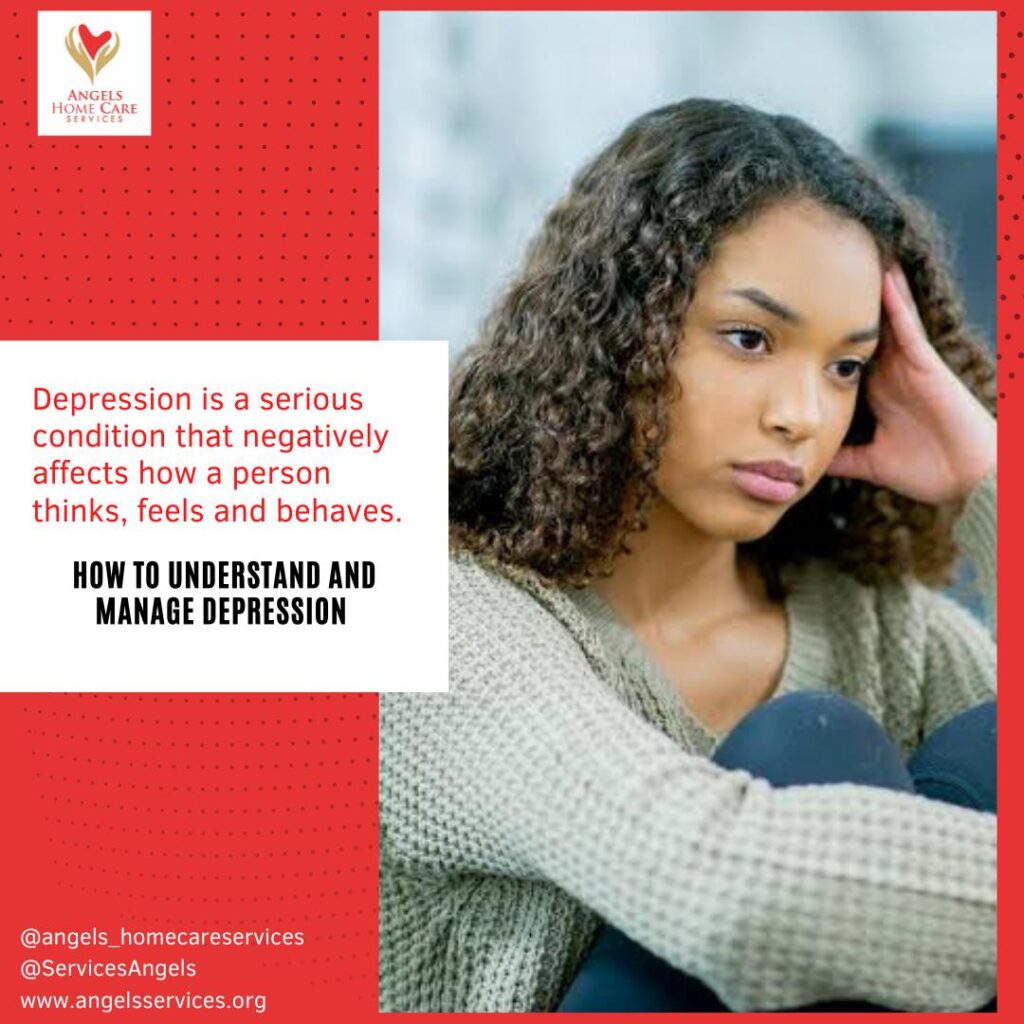
INTRODUCTION
Depression is a mood disorder that involves a persistent feeling of sadness and loss of interest. It is different from the mood fluctuations that people regularly experience as a part of life. Depression is an on-going problem, not a passing one. It consists of episodes during which the symptoms last for at least 2 weeks.
Depression is a serious condition that negatively affects how a person thinks, feels and behaves. In contrast of normal sadness, clinical depression is persistent, often interferes with a person’s ability to experience or anticipate pleasure, and significantly interferes with functioning in daily life.
Symptoms of Depression
The symptoms of depression can include:
• A depressed mood
• Reduced interest or pleasure in activities once enjoyed
• A loss of sexual desire • Changes in appetite
• Unintentional weight loss or gain
• Sleeping too much or too little
• Agitation, restlessness, and pacing up and down
• Slowed movement and speech
• Fatigue or loss of energy
• Feelings of worthlessness or guilt
• Difficulty thinking, concentrating, or making decisions
• Recurrent thoughts of death or suicide, or an attempt at suicide
Depression in Women
Depression is nearly twice as common among women as men, according to the Centres for Disease Control and Prevention (CDC). Below are some symptoms of depression that tend to appear more often in women:
• Irritability
• Anxiety
• Mood swings
• Fatigue
• Ruminating (dwelling on negative thoughts)
Depression in Men
Men with depression are more likely than women to drink alcohol in excess, display anger, and engage in risk-taking as a result of the disorder. Other symptoms of depression in men may include:
• Avoiding families and social situations
• Working without a break
• Having difficulty keeping up with work and family responsibilities
• Displaying abusive or controlling behaviour in relationships
Depression in Teens
Physical changes, peer pressure, and other factors may be responsible for depression in teenagers. They may experience some of the following symptoms:
• Withdrawing from friends and family
• Difficulty concentrating on school work
• Feeling guilty, helpless, or worthless
• Restlessness, such as an inability to sit still
Depression in Children In children, symptoms can make school work and social activities challenging. They may experience symptoms such as:
• Crying
• Low energy
• Defiant behaviour
• Vocal outbursts
Younger children may have difficulty expressing how they feel in words. This can make it harder for them to explain their feelings of sadness.
Causes of Depression
The medical community does not fully understand the causes of depression. There are many possible causes, and sometimes, various factors combine to trigger symptoms. Factors that are likely to play a role include:
Genetic features
Changes in the brain’s neurotransmitter levels
Environmental factors
Psychological and social factors
Additional conditions, such as bipolar disorder
Treatment of Depression
Psychotherapy may help a person manage their symptoms of depression. Depression is treatable, and managing symptoms usually involves three components:
Support
This can range from discussing practical solutions and possible causes to educating family members.
Psychotherapy Psychotherapy includes one-to-one counselling and cognitive behavioural therapy (CBT). Drug treatment A doctor may prescribe antidepressants. Antidepressants can help treat moderate-to-severe depression. Several classes of antidepressants are available:
• Selective serotonin reuptake inhibitors (SSRIS)
• Monoamine oxidase inhibitors (MAOIS)
• Tricyclic antidepressants
• Atypical antidepressants
• Selective serotonin and norepinephrine reuptake inhibitors (SNRIS)
You should only take these medications as doctor prescribes. Some drugs can take a while to have an impact. By stopping the drug, a person may not experience the benefits that it could offer.
Prevention of Depression
Depression isn’t generally considered to be preventable. It’s hard to recognize what causes it, which means preventing it is more difficult. But once you’ve experienced a depressive episode, you may be better prepared to prevent a future episode by learning which lifestyle changes and treatments are helpful.
Techniques that may help include:
• Regular exercise
• Getting plenty of sleep
• Maintaining treatments
• Reducing stress
• Building strong relationships with others
Depression can be temporary, or it can be a long-term challenge. Treatment doesn’t always make your depression go away completely. Managing symptoms of depression involves finding the right combination of medications and therapies. If one treatment doesn’t work, kindly contact Angels Home Care Services. We can help you create a different treatment plan that may work better in helping you manage your condition. At Angels Home Care Services, we work with a team of therapists and doctors that can be of assistance if you are struggling with depression. To book an appointment with us, call 08139774977 or visit our website at www.angelsservices.org
